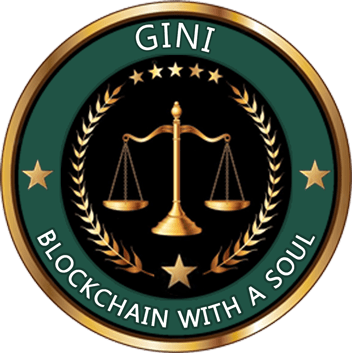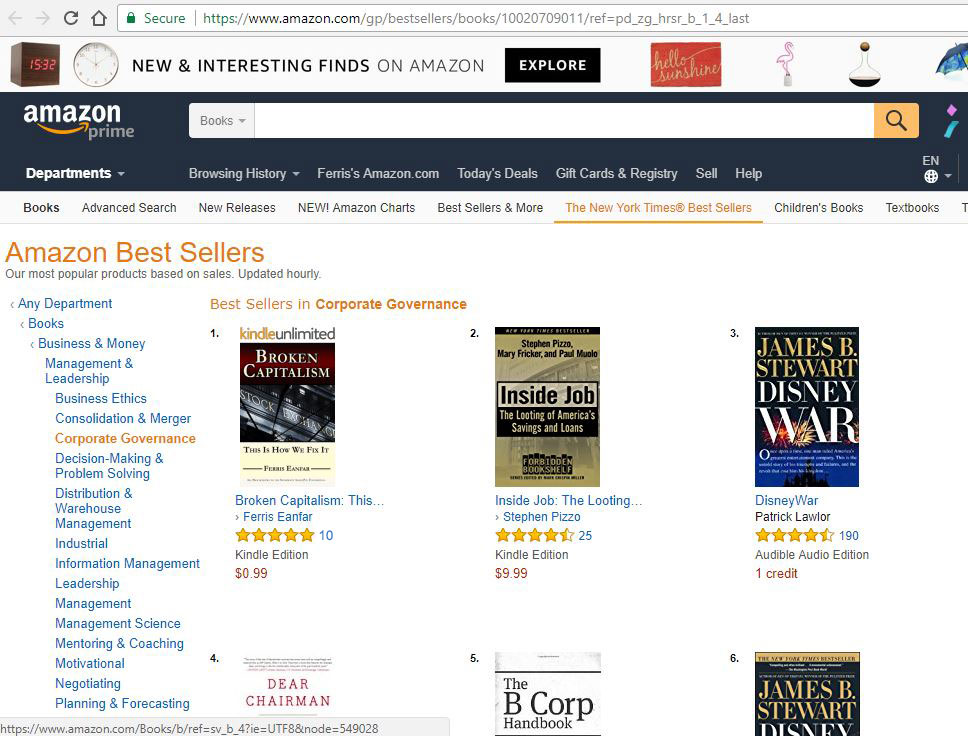Praise Feels Good . . . My book, Broken Capitalism: This Is How We Fix It, has received almost universally positive praise from humans across the socioeconomic spectrum. In fact, some of the most glowing reviews have come from “non-white” readers. Non-white humans have literally hugged me on the streets of New York City after they learned that I wrote this book because it resonates so deeply with anybody who is suffering from Broken Capitalism today.
. . . But We Can’t Please Everybody All the Time. Unfortunately, there is one person (a good friend—I’ll call him “Scooter”) who is uncomfortable with how I described the rough neighborhood and multi-ethnic interactions that I experienced during my childhood. In the book, I briefly described how my childhood years taught me how to fight for what I believe in, to have deep empathy for human suffering and poverty, to live among people from many racial and ethnic backgrounds, and to appreciate the many blessings I have today. All of this is directly relevant to the purpose and scope of the book. And I only devoted a few paragraphs to my own life, which is much less ink than most authors (including economist authors) spill about their lives.
What We Can See Depends on What We Have Seen. Why did I include some very brief biographical information about my personal life in a book about socioeconomic, geopolitical, and corporate governance systems? Because I don’t think anybody can write a credible book about how humanity is suffering from Broken Capitalism today and how to fix it without actually experiencing first-hand how it feels to live in poverty in a multi-ethnic and multiracial environment. There are just too many subtle and significant lessons and observations about human existence that people cannot see, let alone understand, unless they’ve experienced life on both sides of the poverty wall.
Most Readers Care About the Background of the Author. I’ve read hundreds of books and virtually every one of them includes a biographical sketch of the author. The background of the author is important for readers because it helps them assess the credibility of the author’s observations, conclusions, and recommendations. I reasonably assumed every reader would appreciate a few paragraphs about why I truly understand and empathize with a large percentage of our planet’s ever-expanding population of economic refugees. What could possibly be wrong with communicating my authentic and innocent childhood experiences suffering from economic and social instability in a book about the economic and social instability effecting virtually all humans on Earth today?
The Phenomenon of White Guilt. Scooter’s comments are remarkable for what they reveal about an interesting sociological phenomenon called “White Guilt.” The entire first half of my book is devoted to vividly describing how the malfunctioning global economy today is adversely impacting virtually all of humanity; yet, the most innocent and sincere mention of “race” within the context of a deeply relevant aspect of my childhood was somehow uncomfortable for Scooter. He said it makes him uncomfortable because he rejects the concept of “race” altogether. He believes it’s counterproductive for humans to be distracted by the artificial construct of race because we all bleed red blood and we all have virtually the same biological endowments.
Of course, I understand and agree with his point in general, but I have a lot more experience with multiracial and multi-ethnic relations than most of NYC’s Upper East Side denizens. So, the following is a summary of my response to Scooter, which should be interesting to anybody who is curious about how this “White Guilt” phenomenon works.
Race & Ethnicity Are Socially Constructed Realities. No rational and thoughtful human believes race should be a focal point in any human interaction, but that doesn’t mean race is completely irrelevant in human societies. Every serious economist at some point in their careers explores the impact of ethnicity and race on economic development and income/wealth distribution. Capitalism, Democracy, organizational culture, laws and regulations, social taboos and values, religious and ethnic traditions—these are all emergent, socially constructed realities. They are spoken and conjured into existence by human behavior, not by human biology. They exist because human interaction spawns them into existence based on the multitude of needs and desires that every human brings to every human exchange.
Race is Often Shorthand for Ethnicity. The concept of race is often used interchangeably with the concept of ethnicity. The concept of ethnicity is shorthand for the values and traditions that a community of humans share, which can encompass many national and sub-national cultural concepts. Of course, I understand that “race” can also be used counter-productively to create artificial distinctions and divisions between people that do not elevate humanity in any meaningful way. But anybody who reads my book or listens to me speak can easily discern my sincerity and intent, as long as they are not demon-possessed by . . .
Human Experience is Castrated by Political Correctness. When we’re describing authentic, relevant life experiences with people from many ethnic backgrounds, we must use distinctive words to identify those people within our description of those experiences. Without racial and national identifier words like African-American, Caucasian, Asian, Samoan, Indonesian, Russian, Japanese, Hispanic, American . . . there is no practical way to describe our contrasting experiences with humans from different ethnic backgrounds. Our description of reality is thereby castrated because we are restricted from conveying the full texture and nuance of our life experience. This is the essence of a much more sinister monster: political correctness.
Existential Strangulation. People who don’t have substantial real-world experience living in multi-ethnic and multiracial environments often underestimate how important ethnic identification is for the people actually living in those environments. They underestimate how challenging it is to talk about multi-ethnic life experiences without ethnic identifiers. They underestimate the need to communicate freely without politically correct censorship strangling their existence.
Are You Possessed by the Demon of Political Correctness? The only alternative to using race/ethnic identifiers is to know the precise ethnographic vocabulary that is applicable to every tribe, village, and community from which everybody comes. Virtually nobody has the time or inclination to commit an ethnographic library to memory; so many humans in large, multi-ethnic, multiracial countries use race identifiers as a reasonable ethnographic shorthand in conversations about multiethnic experiences. This does not mean they’re racist or bigoted in any way whatsoever. To assume they are is to be possessed by the demon of political correctness.
Avoiding the Ethnographic Swamp. In the strictest sense, I agree that race is not a biological feature of homo sapiens, but that doesn’t mean race (when used as ethnographic shorthand) is immaterial to human experience. Ethnicity is an inextricable facet of every human’s cultural identity. When I describe my innocent childhood experiences with my African-American, Asian, Samoan, and Hispanic friends, how exactly should I describe that experience without getting bogged down in an ethnographic swamp? How exactly should I convey that the ethnic composition of my childhood peer group was a rainbow of humanity with sufficient detail (but not too much detail) to be credible to all my non-white readers?
The Fantasy of a Label-Free World. Creating a label-free world sounds wonderful in theory, but in reality, there is no race- or ethnicity-free way to credibly describe multi-ethnic, multiracial, and multicultural experiences without actually knowing the precise ethnic vocabulary of every tribe, village, and community from which we all come. I don’t spend my days memorizing ethnographic libraries; so what’s wrong with briefly covering some innocent childhood experiences in one paragraph (of a 265-page book) using race identifiers as ethnographic shorthand and then moving on to the meat of the book!?!
White Guilt Creates False Virtue. Scooter admitted that he read the book quickly and probably missed a lot of the details and nuances, but anybody who has read the book can see that the entire purpose of the book is to provide a nonpartisan, panoramic view of the human suffering caused by Broken Capitalism today along with practical, egalitarian solutions to fix it. Despite the obvious purity of my intentions, Scooter didn’t want to see the slightest hint of race in the book. I’ve seen this behavior before: Many people who grow up in ethnically homogeneous, financially secure homes and communities don’t really know how to talk about race and ethnicity without feeling guilty, uncomfortable, or afraid of saying the wrong thing. They internalize the political correctness that dominates American society today so deeply that they start believing it’s an expression of their own virtue.
Victims of White Guilt Project their Fears onto Others. It’s easier for them to mentally block out of their minds the socioeconomic complexity of race and ethnicity (and to demand that everybody else block it out, too) than to acknowledge that these features of humanity exist as socially constructed realities; and that race is often a reasonable shorthand for innocent ethnic generalizations that are merely tertiary comments within the scope of more salient public policy discussions. It’s difficult for them to discuss social and economic systems in terms of how they affect specific groups of people from different racial and ethnic backgrounds. And it’s often very difficult for them to discuss how these differences do in fact create differential outcomes . . . even when there is equality of opportunity in a society.
Who Should We Blame? As I stated several times in my book and in “Should We Blame Rich People?,” blaming “rich people” is ridiculous and no rational or thoughtful human blames anybody simply because they have money. The blame for the problems of our world rests with the people who engage in specific actions that cause those problems. Sometimes the problems are caused by rich people and sometimes they’re caused by poor people. In the case of Broken Capitalism (as defined in my book), the problem has nothing to do with “rich people”; it has everything to do with “Transnational Cannibalism,” the “Neurotoxin of Globalism 1.0,” and specific government policies that distort economies and bankrupt nations in specific ways. Who should we blame for this? The answers and solutions are in the book.
Broken Capitalism is Not Inevitable. Many of my friends in some of the most affluent neighborhoods on Earth are living in their safe social bubbles while Transnational Cannibals, Artificial Intelligence, and systemic corruption destroy the value creation engines of human societies all over our planet. Broken Capitalism is not inevitable; it’s a mutation of a socially constructed economic operating system for humanity that we call “Capitalism.” Humans created it, which means humans can improve it. It’s not possible to please everybody all the time, but as long as we know our intentions are pure and our goals are achievable within a reasonable amount of time and resources, don’t worry about the tiny number of naysayers who either don’t get it or don’t want to get it. Move on and find the people who get it.
To learn more, please read Broken Capitalism: This Is How We Fix it and spread the word.
About Ferris Eanfar
Ferris Eanfar has over 20 years of experience in technical, financial, media, and government intelligence environments. He has written dozens of articles and several books in the fields of Economics, Crypto-Economics, and International Political Economy, including Broken Capitalism: This Is How We Fix It and GINI: Capitalism, Cryptocurrencies & the Battle for Human Rights and the Global Governance Scorecard. Ferris is a cofounder of the Gini Foundation, which builds unique cryptocurrency systems to protect human rights, among other benefits; and the CEO of the AngelPay Foundation, a nonprofit financial services company with a mission to “return wealth and power to the creators of value.” To learn more about Ferris, please visit the About Ferris page.Visit Ferris on:

 Gini Website Coming Soon. We (
Gini Website Coming Soon. We (
